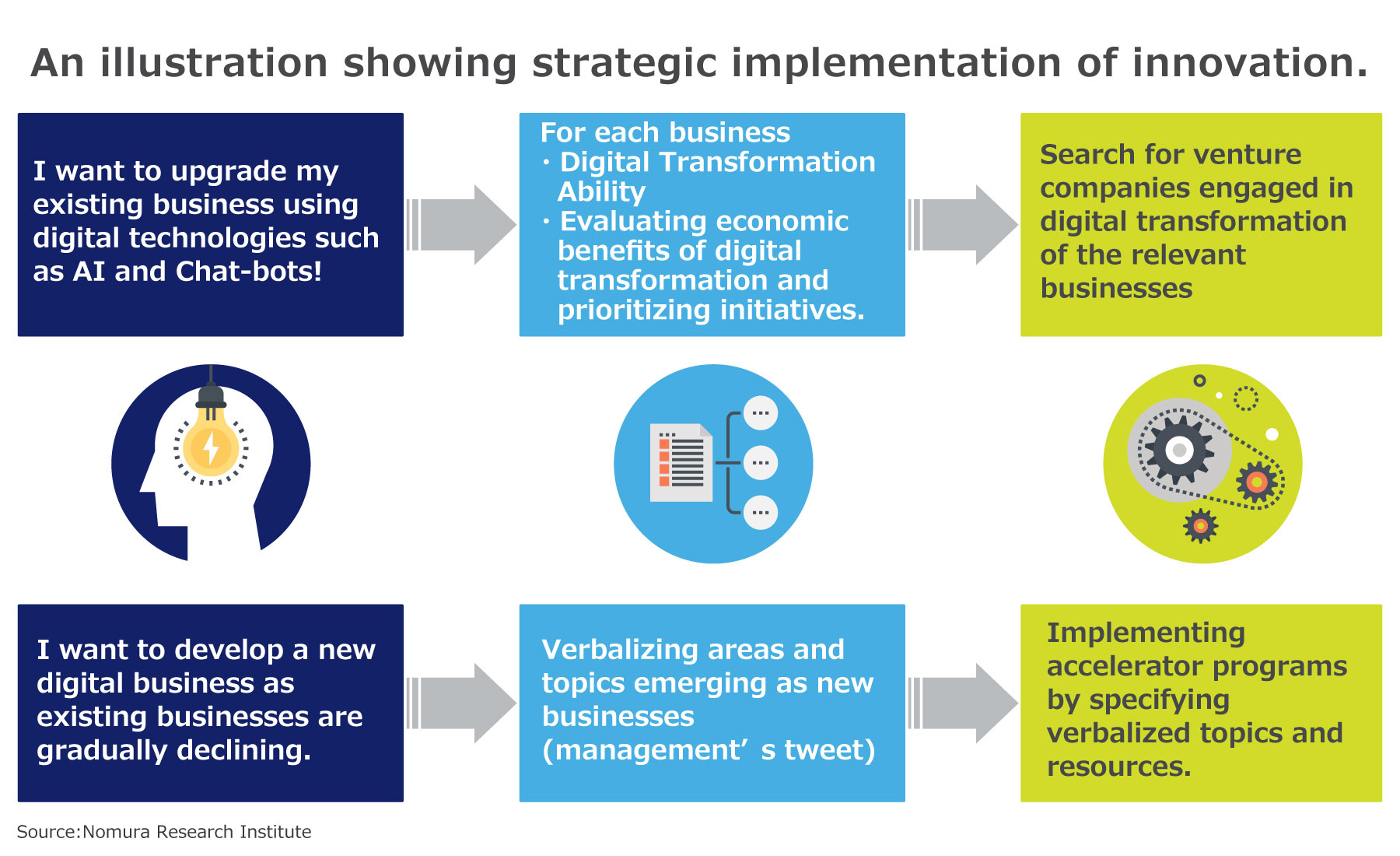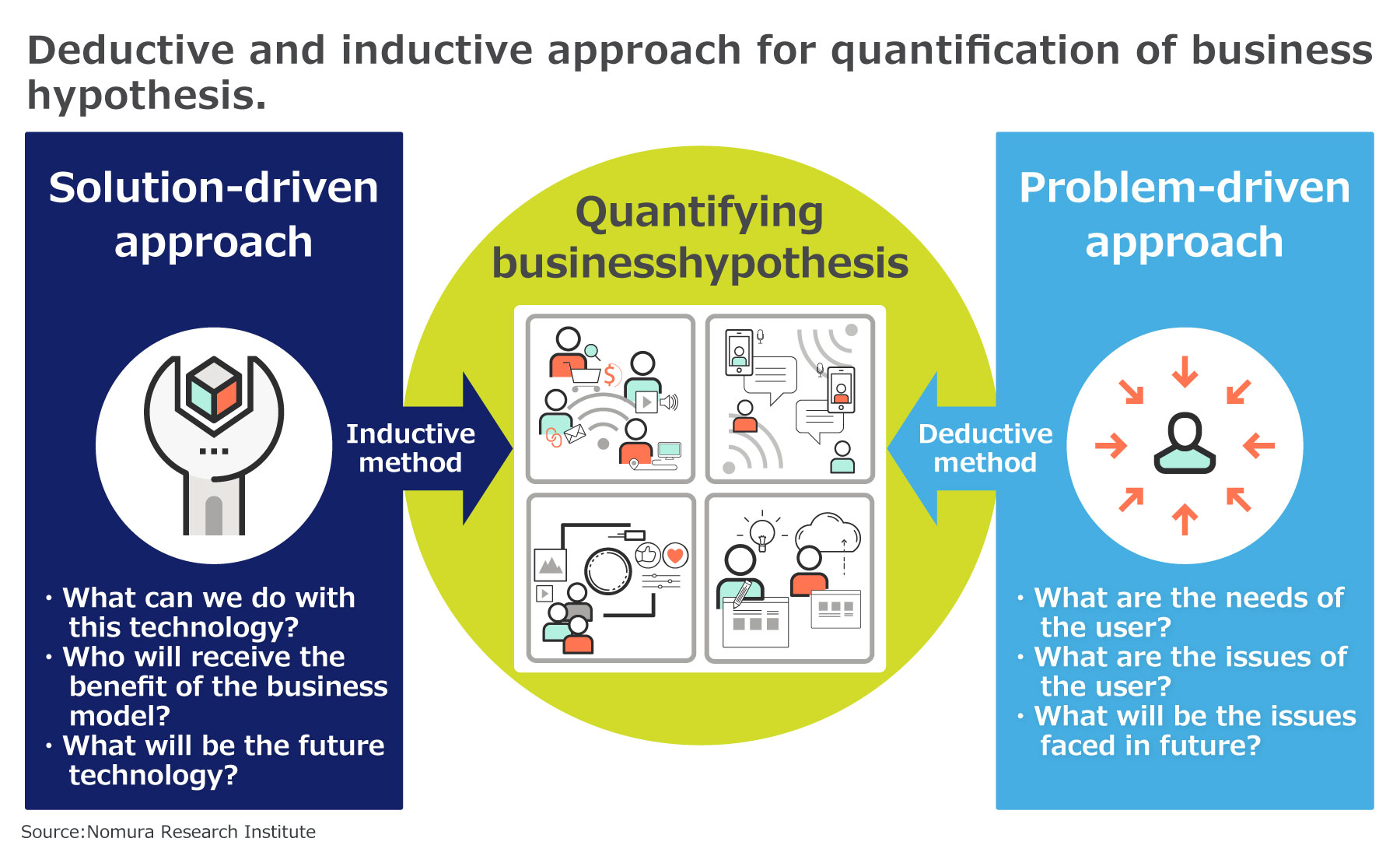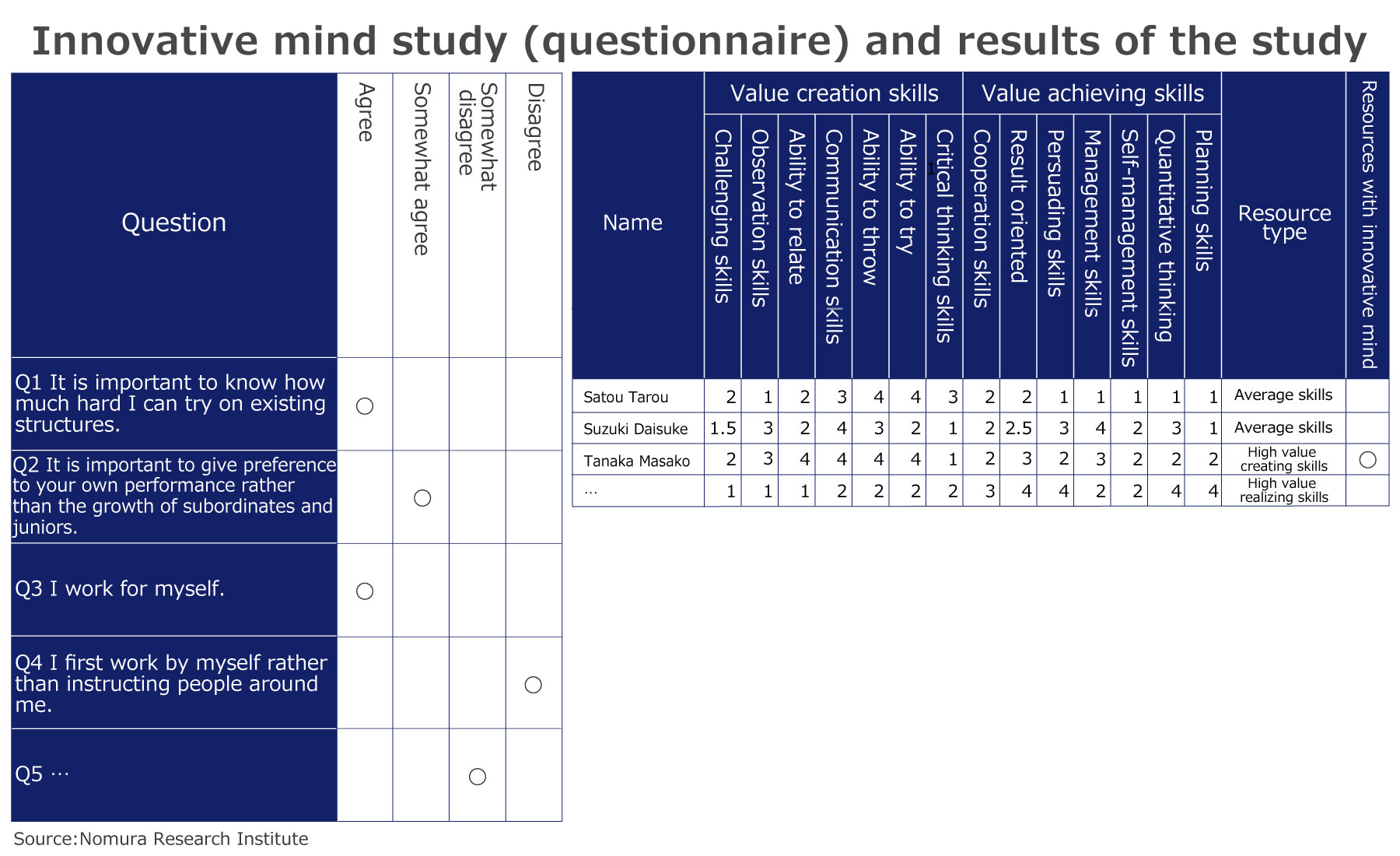Business Innovation
Companies are recently taking various initiatives towards innovation through business planning contests and acceleration programs with venture companies and are undergoing an unprecedented innovation boom. However, it cannot be strongly said that many Japanese companies seem to be delivering innovative results. Each company’s aim for innovation is unclear, they do not possess the know-how to quantify business hypothesis and a shortage of resources required for innovation is an obstacle for innovation promotion. NRI supports in overcoming these obstacles and promotes the co-creation of innovation with customers who has used NRI digital resources.
Support for Formulating and Implementing Innovation Strategy
Companies are recently taking various initiatives towards the realization of innovation through design thinking workshop, business planning contests, matching events, accelerator programs and venture capital (CVC). However, many cases show that Japanese companies are only imitating the methodologies (How) of Silicon Valley whose innovation eco-system has been structured without thinking about their own aims and strategies (Why), which is an essential element. NRI provides support in formulating “Innovation Strategy” and obtaining “Results” from an “Image”, which explains the process considering goal to achieve through innovation, method as well as the pre-requisites for effective implementation.

Support in Quantifying Business hypothesis
Many companies are facing challenges in the “creation of business hypothesis”, which has become a bottleneck in innovation promotion. The creation of business hypothesis is originally based on strong incentive (enthusiasm of doing something). However, such strong incentive cannot be seen in major companies. It may be seen either in those who are already running their businesses or who wish to leave major companies to start their business. The certain methodologies such as deductive and inductive approach are needed to quantify business hypothesis in the company. A deductive approach is a syllogistic method that includes confirming market needs, identifying latent markets and issues, and conceptualzing achievable business models. Meanwhile, inductive approach refers to collection of various ideas through “collaboration with venture companies that can provide ●● service with our company” and choosing an idea to draw a conclusion. This approach is used by Silicon Valley to develop new ideas one after another. Whereas, most of the major Japanese companies find it difficult to proceed further due to lack of “Certainty”. Therefore, it is important to combine inductive approach of Silicon Valley with the deductive approach. NRI supports the design and execution of the process through both deductive and inductive approach.

Innovative mind study
In order to promote the innovation, it is necessary to hire those resources who are inclined towards innovation. The skill set required for innovation includes “Value creation skills (creativity for innovation)” and “Value achieving skills (accountability for realizing innovation)”. Major companies have various resources with strong “value achieving skills” but only 5-10% resources with strong “value creation skills”. NRI has developed a mechanism called “Innovative mind study” which measures “Value creation skills” and “Value achieving skills” of an individual. The identification of “Value creation skills” and “Value achieving skills” of an individual through “Innovative mind study” is very important for appointing appropriate resources for the innovation.

Related Articles
What Does It Take for Open Innovation to Create Successes?(NRI JOURNAL Jul. 23, 2018)